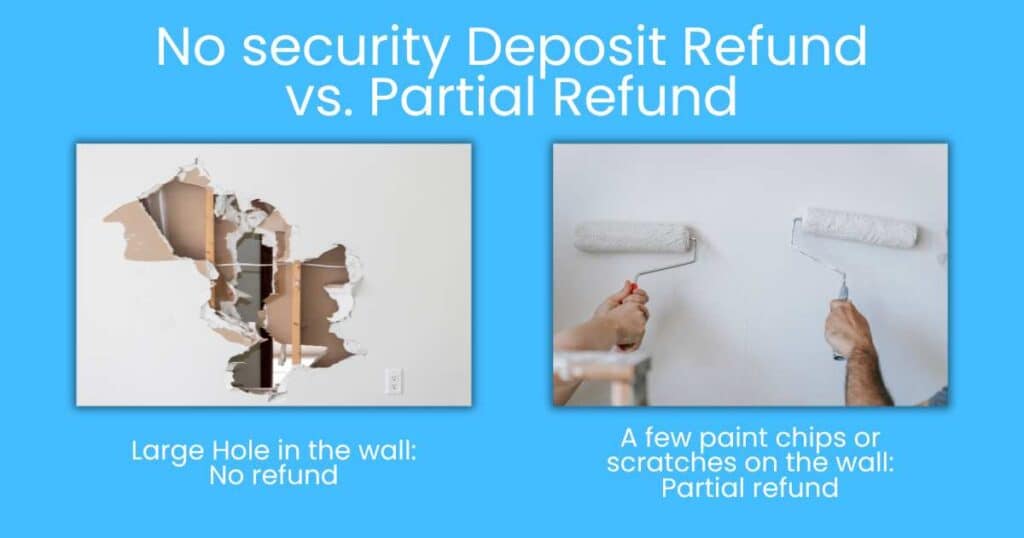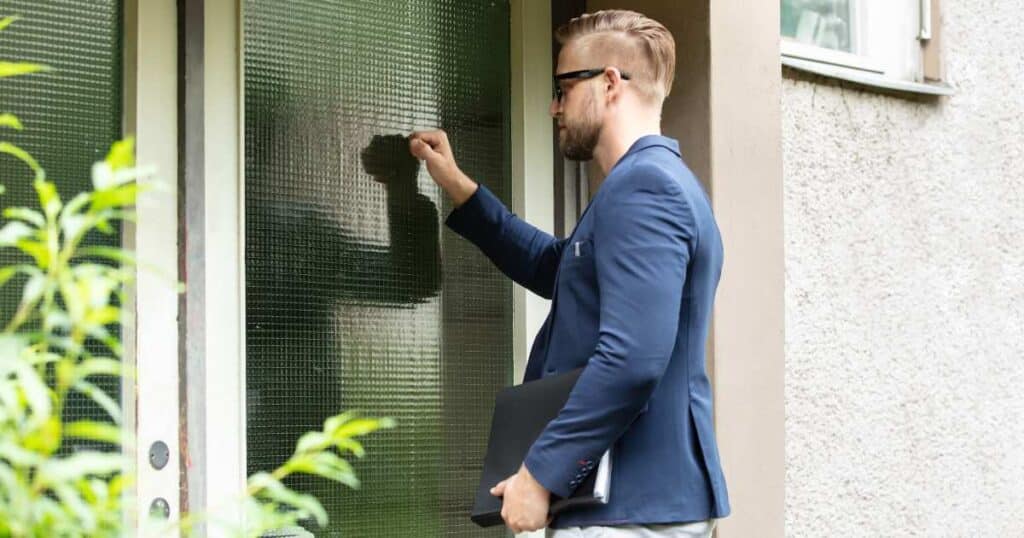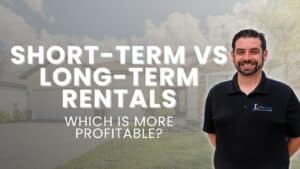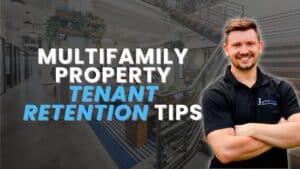A lease agreement is a document that landlords and tenants can lean on to ensure a smooth and successful lease term. This essential rental document is a legally binding agreement between a rental property owner or landlord, and each tenant that resides in the property.
Without a written lease agreement, there are no rules and regulations set in place to refer to. Failure to provide an in-depth and specific lease agreement can result in lost rental income, property damage, and an unsuccessful rental property experience.
It is vital that all property owners understand lease agreements— as a professional property manager I’ve seen the consequences of landlords who fail to provide a lease agreement, and it doesn’t end well. So, here are 10 key terms every rental property owner should know and utilize in their lease agreements.
1) Party Identification
The lease agreement should identify the full names of each party, including each tenant and the landlord. This identifies who is involved in the agreement and responsible for upholding their end of the agreement including rental payments, preserving property conditions, and following all rules.

All occupants over the age of 18 must be included on the lease agreement as every occupant is responsible for upholding the terms and rules and regulations. If you don’t identify every tenant on the lease, they are not contractually obligated to uphold the lease agreement which could result in damage, failed payments, and even legal issues that would not otherwise happen if they were on the lease agreement.
2) Property Description
The lease should include a full description of the property to describe the state of the property at the beginning of the lease term. While it may seem obvious that your property is a 2-bedroom, 2-bathroom single family home, it is important to put it into a written document to ensure no significant changes are made by the tenant without your knowledge or permission.
In simple terms, having a written property description allows you to compare the property in the beginning of the lease to the end. Upon property inspections, if you find that your tenant has altered the property, whether on purpose or not, you have a legal document that allows you to hold your tenant accountable.
3) Lease Duration
Long-term lease agreements typically last 12 months long but can vary depending on the property owner’s preferences. Even if your lease is shorter than 12 months, I still recommend enforcing a lease agreement.
The lease duration must be identified in order to ensure your tenants fulfill their obligation. This requires your tenant to pay for the agreed upon amount of time, and allows you to earn a promised and steady rental income from your Tampa rental property. Not only does this ensure you earn a steady rental income, but it also ensures you have the means to pay for monthly expenses such as mortgage payments, maintenance bills, or HOA fees, while earning a steady return on investment (ROI).
4) Rent Payment Terms
One of the most essential aspects to specify in a lease agreement are the rent payment terms. This section should detail:
- Rent amount
- Rent due date
- Rent payment options (tenant portal, money order, etc)
- Consequences for payment failure
- Late fee terms and amount
Rent payment specifics will hold your tenant legally liable for paying rent on time and in full, otherwise they are subject to the consequences outlined in the lease agreement.
5) Security Deposit Terms
Tampa rental property owners typically collect a security deposit in the amount of the monthly rental rate at the start of the lease. The security deposit acts as a monetary assurance that your tenant will keep the property in good condition and in accordance with the lease agreement.

At the end of the lease term, the security deposit will be returned to the tenant if the property is left in the same condition as it was when the lease began. If there is severe damage or unauthorized changes, the security deposit will not be refunded. However, in some cases, there is damage that is minimal and fixable; then, the owner has the right to withhold a portion of the security deposit and refund the rest. The security deposit can then be used to address the issues and return the property back to its original condition.
6) Rules and Regulations
Every rental agreement should outline the rules and regulations of the lease agreement. The rules and regulations of your specific property may vary from others depending on the property owner’s preferences, the HOA rules, and the type of property.
For example, the lease agreement for a multifamily complex unit will contain differing rules and regulations from a single-family home. Many condominium and apartment complexes have specific rules such as quiet hours, guest sign-in rules, or common area regulations, whereas single-family properties typically do not. Whether or not you would like to enforce such rules for your single-family home or duplex is up to you and your preferences.
7) Maintenance and Repair Processes
It is likely that your tenants will need maintenance or repairs at some point. Whether there are small issues or complex repair needs, the lease agreement should specify the process for addressing and resolving necessary maintenance and repairs.

The most common rental property maintenance issues include:
- Pest control
- HVAC issues
- Roof leaks
- Paint touch-ups
- Plumbing issues
- Electrical systems
- Appliance repair
All rental property owners should have a property maintenance reserve account. A property maintenance reserve ensures that funds are readily available for maintenance issues that may come out of the blue or need to be addressed during the lease term. Regardless of whether your property is 1 or 100 years old, it is necessary to be prepared to address and pay for repairs as maintenance is inevitable. Promptly tending to maintenance issues and repairs can be the cornerstone of successful rental property ownership. A well kept property will help attract and retain tenants, as well as ensure a steady cash flow is coming your way.
8) Grounds for Termination of Lease in Tampa
The lease agreement specifies situations which are grounds for termination of the lease. These situations typically include:
- Late or failed rent payments
- Property damage
- Illegal tenants or pets
- Noise complaints
- Illegal activities
- Health and safety violations
- Failure to comply with required services or repairs (lawn care, water and electricity, allowing maintenance vendors to enter).
Identifying grounds for termination of the lease for your Tampa rental property will encourage your tenants to follow specific rules and regulations. This outline serves as a “rule book”, where breaking the rules ends with the consequence of lease termination. These rules hold your tenant accountable and give the property owner a legal right to terminate the lease. Without written outlines of situations that are grounds for termination of the lease, your tenant could essentially do as they please with no consequences.
9) Landlord’s Right to Entry
Although it is your rental property, as a landlord, you do not have the right to enter the property at any time. In Tampa, landlords must provide at least 24 hours notice to the tenant that they will enter the property. It is then that the landlord may enter the property, and the tenant is legally obligated to allow the entry.

The landlord may enter, with proper notice for the following reasons:
- Maintenance and repairs
- Inspections
- Showings
- Emergencies
- Tenant absence
If the tenant fails to oblige, the landlord can take legal action such as sending a 7-day notice to cure or quit. It is essential to note this clause in the lease agreement, otherwise, your tenant can refuse the landlord’s right to entry because of a lack of a written explanation in the lease agreement.
10) Florida Landlord Disclosures
In Florida, there are multiple landlord disclosures that must be made to tenants in regards to the property, payment information, and names and addresses of landlords and managing agents.
These disclosures must be in writing in the lease agreement and include the following:
- Landlord’s name and address
- Known lead-based paint hazards in properties built before 1978.
- A warning about radon gas and information about whether radon gas is present or near the property.
- Information about fire protection if the building is over three stories high.
- Landlords must disclose information about the security deposit including where it will be kept. They must also disclose (within 30 days of receiving the deposit) if the tenant will be issued a percentage of interest if the security deposit is held in an interest-bearing account.
- Landlords must disclose the names and addresses of anyone authorized to act on their behalf, such as property agents or property managers.
These disclosures are required by law on a Florida lease agreement as they provide safety and regulation to both parties.
Advice From a Professional Tampa Property Management Company
As a Tampa landlord, understanding lease agreements and their key terms are vital for the success of your rental property. Without an in-depth written lease agreement, there is no presence of a legally binding contract with rules to regulate your tenant and guide you to rental success.
If you want to reach maximum success and ROI, your lease agreement must be all encompassing and enforced throughout the entirety of the lease term. At The Listing Real Estate Management, we’ve worked with many property owners who did not have a clear lease agreement. Many of these tenant-landlord relationships end poorly and create a lack of order or success in the tenancy.
As a professional property manager in Tampa, Florida, I know the importance and magnitude of a lease agreement. I also know that understanding lease agreements and identifying what to include in them can be difficult. If you’ve found yourself in a tough situation because of a lack of, or poor, lease agreement, we’re here to help. At The Listing, all of our tenancies begin with a lease agreement signed by all parties involved. To learn more about how we can help you develop the perfect lease agreement for your Tampa rental property, contact us today!
Copyright © 2017-2024, The Listing Real Estate Management. All Rights Reserved.





